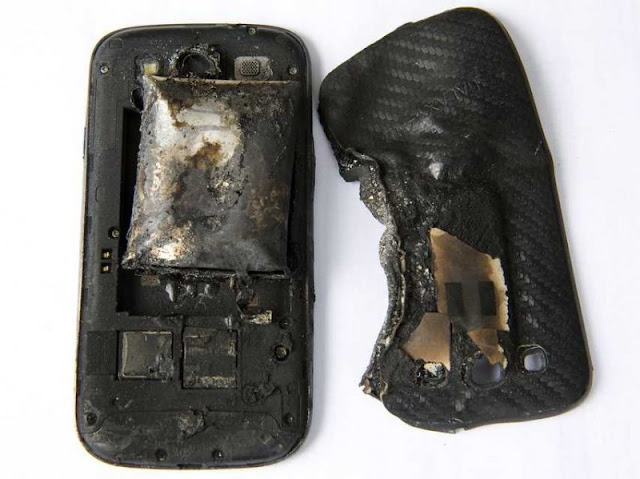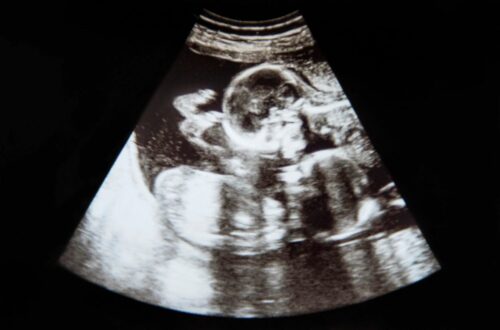Imagine you are one of the thousands of people who have been looking forward to receiving a brand new Samsung Galaxy Note. However, after hearing news of their vulnerability to spontaneous combustion, you call Samsung and are told that there is indeed a possibility of your phone exploding in your pocket. If you so choose you may decide to stop the delivery and the phone will be destroyed along with all the other phones that have yet to be delivered. The trouble is, you really want the phone. If you choose to receive the phone it may never explode, but you will always live in fear that at any moment it could go off. And then there will be the accompanying costs and hassles in the form of upgrades, new parts etc. And if it does explode, there will be greater costs. You are not sure how much but you ask yourself: “what if the phone burns my house down?” Although the phone looks great you decide to stop delivery and condemn the phone to the flames. Maybe they’ll make another phone, one that won’t explode. Still, you really wanted that phone and now you feel disappointed.
The pertinent question for what follows is: is there a different dilemma to be faced before and after the phone arrives? If there is a difference, what is it?
Now consider the following analogous dilemma from Meredith Isaksen, a poet and English instructor at Berkeley City College:
I was 21 weeks pregnant when a doctor told my husband and me that our second little boy was missing half his heart. It had stopped growing correctly around five weeks gestation, but the abnormality was not detectable until the 20-week anatomy scan. It was very unlikely that our baby would survive delivery, and if he did, he would ultimately need a heart transplant… In the days that followed, after the poking and prodding, after the meetings with pediatric cardiologists, cardiothoracic surgeons and geneticists, my husband and I decided to terminate our pregnancy.
So, yes, this post is about abortion; not phones. But here’s the question: What exactly is the difference between the dilemma Meredith faced before delivery and after the delivery? Unlike the dilemma about phones, this dilemma is morally significant. Implicit in my question is the concern that some late term/partial birth abortions are justifiable only if a post-birth abortion is morally justifiable. And if the latter is never justified, then neither is the former.
Apart from the moral significance of the dilemma the analogy with the phone works. Just as a the phone is defective so the child has a heart defect. It is likely that there will be great costs if Meredith goes ahead with delivery:
For us, the decision was about compassion for our unborn baby, who would face overwhelming and horribly painful obstacles. Compassion for our 2-year-old son, who would contend with hours upon hours in a hospital, missing out on invaluable time spent with his parents, and the death of a very real sibling. It was about compassion for our marriage. Perhaps most important, it was about our belief that parenthood sometimes means we sacrifice our own dreams so our children don’t have to suffer.
She certainly knows what life would be like if she chose to keep the baby – very hard. There would be an incredible cost to pay, sacrifices to make.
But again I ask: is there some distinctive between the two dilemmas, some moral reason one can abort a child with a heart defect before birth but not after birth? I can see no feature of the situation that makes a difference to how one should make this decision differently any more than I can see any difference between putting a stop on the delivery of a new Samsung phone and destroying it after it was delivered.
Some might reply that it is against the law to abort a child after a certain time. This is true as Meredith explains: “I was 22 weeks pregnant when they wheeled me into the operating room, two weeks shy of viability in the state of California.” However, laws are supposed to reflect some moral reality not the other way round. It is not a question of what is legal or not but why it should or should not be legal. This is not a question of legality but of morality.
As the day of my termination approached and I felt my baby’s kicks and wiggles, I simultaneously wanted to crawl out of my skin and suspend us together in time. I wanted him to know how important he was to me, that the well of my grief and love for him would stretch deeper and deeper into the vastness of our family’s small yet limitless life. He may have moved inside me for only five months, but he had touched and shaped me in ways I could never have imagined.
…Saying goodbye to our boy was the single most difficult and profound experience of my life, and the truth is, it has come to define me. Today I am a better mother because of him. I am a better wife, daughter and friend. He made me more compassionate and more patient. He taught me to love with reckless abandon, despite the knowledge that I could lose it all.
We named him Lev, the Hebrew word for heart.
Upon reflection, I can’t see any relevant difference between the two dilemmas. If abortion is morally justifiable, then so is infanticide, and any other treatment of disease and deformity by killing. If one opposes one–infanticide, for example–then one ought to oppose the others. If you support infanticide, you have walked beyond the line of moral reasoning. If you do think infanticide is morally wrong, then you, like I, should oppose pre-delivery infanticide.



